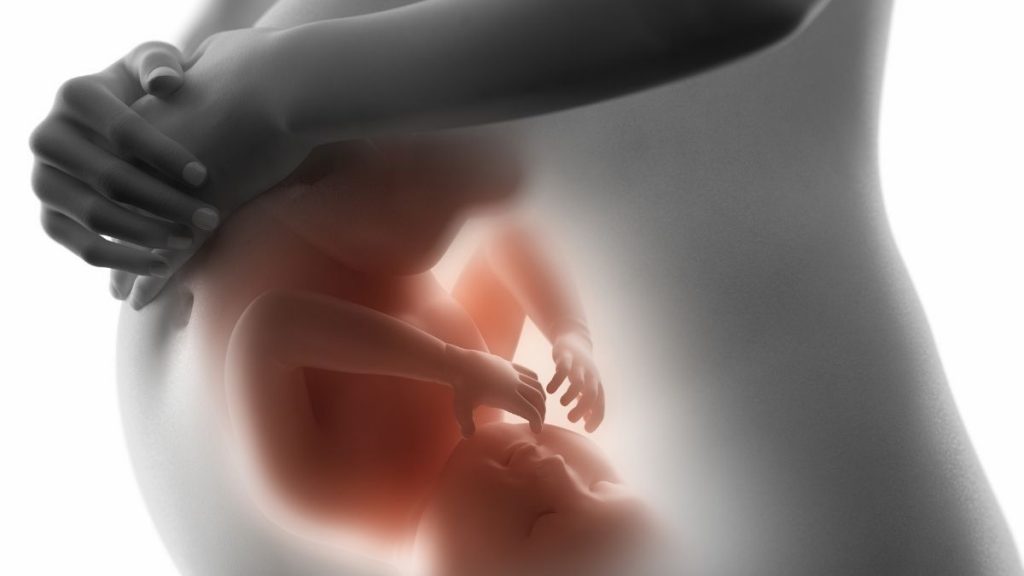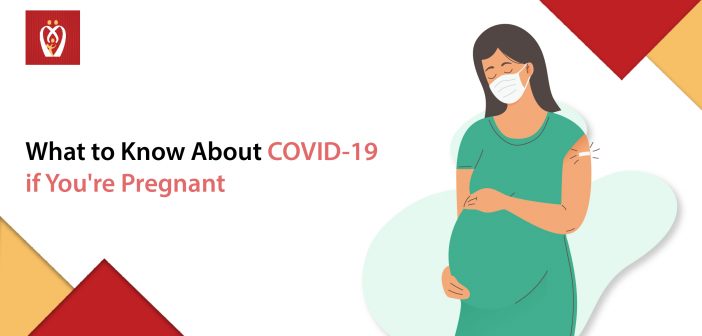Introduction
Being pregnant is already stressful, but the emergence of the new coronavirus and COVID-19, the illness it causes, makes it much more so. Coronavirus is generally transmitted from one infected person to another by respiratory droplets released into the air as a result of coughing or sneezing. Contacting or shaking hands, or touching a virus-infected surface and then touching your mouth, nose, or eyes before washing your hands, may also transmit the virus.
People who have had confirmed COVID-19 instances have reported the following symptoms like Fever, Cough, Breathing difficulty, Chills, Muscle ache, Fatigue, Headache, Throat discomfort, a new version of flavour or scent, Runny nose or congestion, vomiting or nausea, Diarrhoea, etc.
Symptoms might develop two to fourteen days after a person has been exposed. COVID-19 causes moderate sickness in some persons, whereas it causes severe illness in others. Others exhibit no symptoms, yet they can still transfer the infection. It’s reasonable to have concerns about COVID-19 and wonder what it implies for your pregnancy. Here’s what expectant parents should know.

Does covid-19 lead to serious risks during pregnancy?
If you are pregnant, your chances of contracting COVID-19 are no higher than anybody else’s, and it is extremely unlikely that you will become critically ill as a result of it. As a precaution, pregnant women have been placed in the intermediate-risk (clinically susceptible) category. This is due to the fact that being pregnant might make you more susceptible to viruses such as the flu. It is unclear if this occurs with COVID-19.
However, because it is a novel virus, pregnant women should be included in the intermediate-risk group. Although it is extremely unusual for pregnant women to become critically sick if they contract COVID-19, it is possible later in pregnancy. If this occurs, there is a tiny risk that your baby may be delivered before their due date, or that you will be recommended to give birth before your due date. While the likelihood of having a stillbirth is minimal, there is some growing evidence that the risk may be increased if you have COVID-19 at the time of birth.
In the United Kingdom, information on all pregnant women admitted to hospital with coronavirus is kept in a register known as the UK Obstetric Surveillance System (UKOSS). According to the findings of this study, the majority of women admitted to the hospital were in their third trimester of pregnancy. As a result, starting at 28 weeks of pregnancy, it’s critical to pay close attention to social distance.
Pregnant women who get severely ill with COVID-19 have a two to three times greater chance of delivering birth prematurely, according to studies. According to the UKOSS research, some pregnant women are at an increased risk of acquiring severe illnesses, such as:
- Pregnant women from black, Asian, and minority ethnic origins (BAME)
- over-35-year-old ladies
- Overweight or obese females
- women with pre-existing medical conditions such as high blood pressure or diabetes
- living in places or families with a high level of socioeconomic disadvantage
- Healthcare providers are also recommended to inform women who are known to be at higher risk at each encounter that they may be at risk of coronavirus complications. If any of the following apply to you, seek treatment as soon as possible if you are concerned about your or your baby’s health.
What to know if you are pregnant during COVID-19?
Consult a doctor or a midwife as soon as you discover you’re pregnant.
They will assist you and provide you with all of the information you want. They will also ensure that you receive safe and personalised maternity care. If you’re pregnant, you should take precautions to avoid getting and spreading COVID-19, such as washing your hands often. It is especially crucial to follow this advise if you are more than 28 weeks pregnant. Unless otherwise instructed, you must attend all of your pregnancy (antenatal) scans and appointments.
Go for regular appointments and antenatal scans
While pregnant, you will continue to have frequent checkups and scans. However, there may be some modifications.
- You may discover that certain midwife visits are available online, via phone, or by video call.
- When visiting a hospital or clinic, you may be required to wear a mask or gown.
- You may be required to provide documentation of a recent negative. COVID-19 examination
- Some appointments may be postponed or cancelled – Your appointment will be postponed or you will have the option to rebook.
- This is to keep everyone safe and to prevent the spread of COVID-19.
What to do if you get covid-19 symptoms during pregnancy?
If you develop any COVID-19 symptoms (a high temperature, a new, continuous cough, or a loss or change in your sense of smell or taste):
- Book a test – as soon as feasible, have a PCR test (a test that is sent to a lab) to see if you have COVID-19. If you live with someone who has symptoms, you should get them tested as well.
- Stay at home and avoid guests — self-isolate until you receive your test results. You should only leave your house for a test. Check to see whether the individuals you live with need to separate themselves.
- Speak with your midwife or the maternity team; they will advise you. Some of your prenatal visits may need to be rescheduled, or you may be able to have them online, by phone, or by video consultation.
What to do if you have COVID-19 and go into labour?
If you have COVID-19 symptoms and go into labour, you will be advised to give birth in a doctor-led facility (obstetrician). This is done so that the team can better care for you and your baby. You’ll be cared for in a special part of the maternity unit reserved for pregnant women and persons with COVID-19. The midwives and maternity staff may be wearing aprons, masks, or eye protection.
These precautions are in place to keep you, your baby, and the medical personnel caring for you safe, as well as to prevent the transmission of illness. The presence of COVID-19 should have no bearing on whether you have a vaginal or caesarean delivery. Your maternity team has provided you with information on how to keep you and your baby safe. They will ensure that you receive the finest possible care while adhering to your birth preferences as closely as possible.
Importance of antenatal classes during pregnancy
Antenatal classes, also known as prenatal classes or childbirth education, are designed to help you prepare for your upcoming labour and delivery, as well as the first few weeks with your new baby. An excellent antenatal class will provide you and your spouse all the information you need to feel confident and peaceful during your labour and delivery. Pregnancy, delivery, and fundamental hospital processes can all be made less mysterious with classes.
Antenatal classes are an excellent way to meet other parents who are going through similar experiences. It’s a terrific time to share tips, and you might even meet someone with whom you can schedule a playdate once your baby arrives! Prenatal and pregnancy programmes help moms and parents feel more secure in their decisions and have a more positive outlook on the whole experience.
How Nurturey helps with antenatal care?
Considered as one of the best maternity care apps, Nurturey PinkBook helps with antenatal care and makes pregnancy journeys easier for the pregnant users. The PinkBook believes in assisting women throughout their pregnancy journey, whether it’s scheduling an appointment with a GP surgery-linked midwife, receiving reminders of upcoming scans and tests, promoting a kick counter tool to monitor baby’s movements, or receiving trusted guidance directly from the NHS.
Conclusion
Pregnant women and mothers were not shown to be at a higher risk of COVID-19 infection than non-pregnant women, but pregnant women with symptomatic COVID-19 may have more negative outcomes than non-pregnant women and appear to incur disproportionately negative socio-economic repercussions. Therefore, antenatal care is of much importance during such times to ensure utmost safety during pregnancy.







